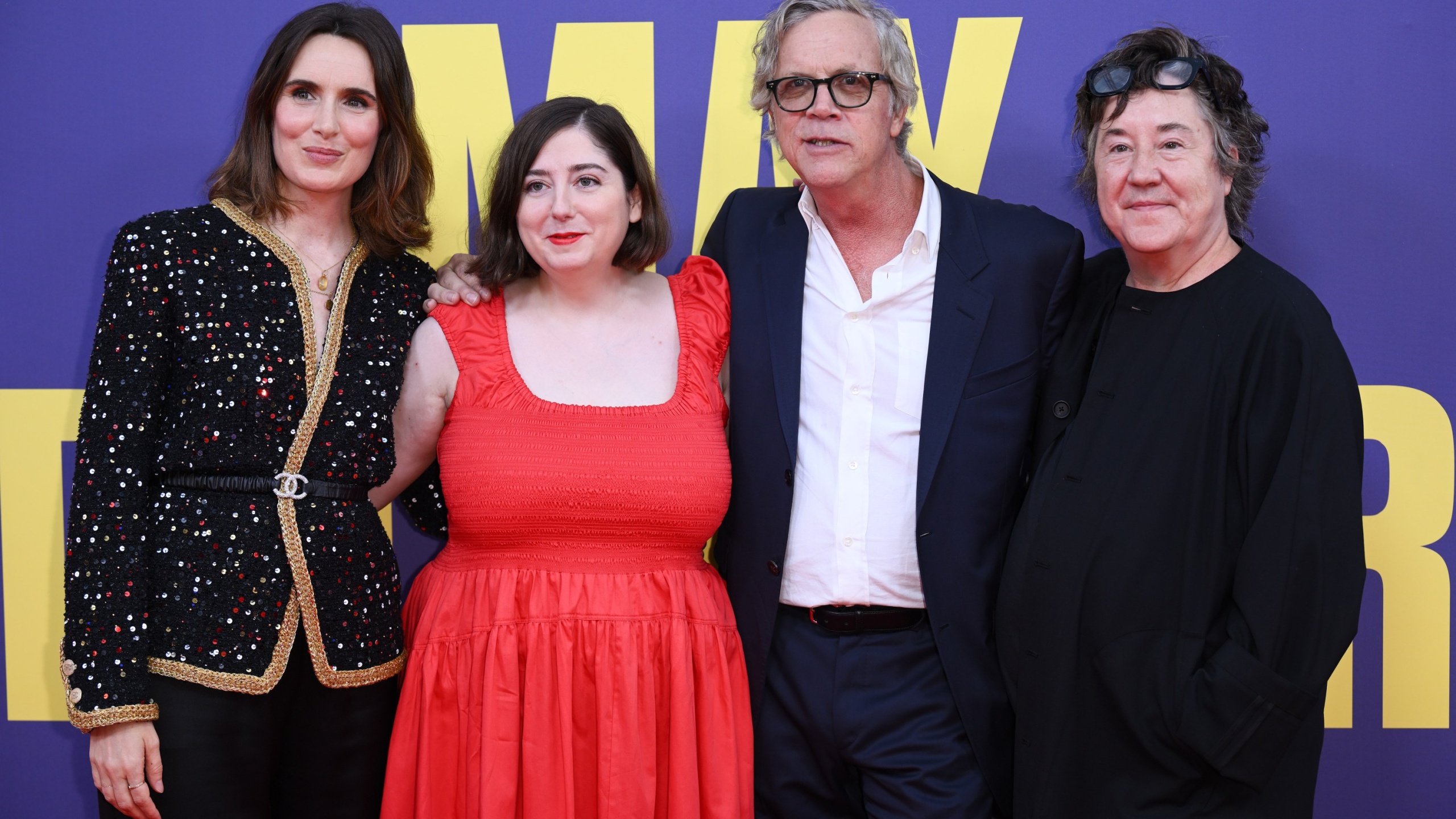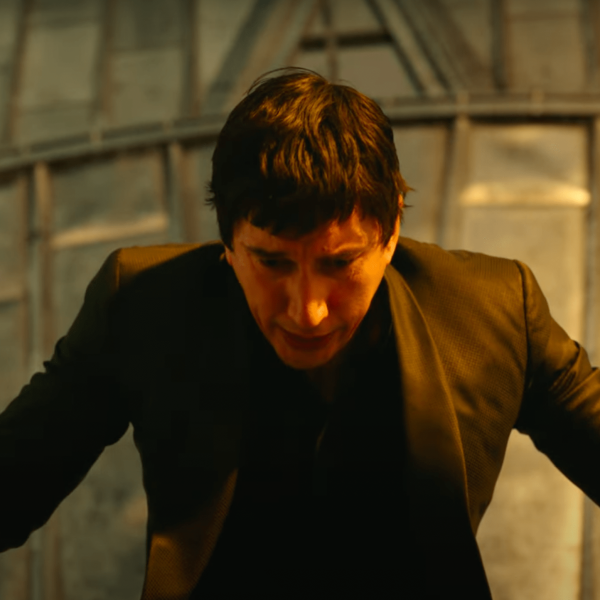
Newcomer Samy Burch wasn’t exactly shooting for the stars when she started writing “May December” — which would go on to become a parley between Best Actress winners Natalie Portman and Julianne Moore, directed by indie icon Todd Haynes — on spec. “I really wrote this in the coat closet of our apartment. If I had had the people that got these roles on the corkboard, I would’ve seemed grandiose,” said the screenwriter to IndieWire during a sit-down at the 2023 Middleburg Film Festival. “My goal with it was honestly to get representation. So everything that’s happened after that has been incredible.”
After making the outline with husband Alex Mechanik, Burch finished the script on Memorial Day 2019, the holiday that coincidentally kicks off the film, which follows an actress who embeds herself into the lives of a scandalized couple when she is cast in a film about them. And, yes, “May December” did help secure Burch a manager, but that then led to a meeting with Jessica Elbaum of Gloria Sanchez Productions, who was the catalyst for the rest of the major names that became attached to the project.
“When I got on the phone with [Elbaum], she just so got it. She got the tone, she got the humor, but also the heartbreak of it. It was just one of those amazing conversations of someone saying ‘Me, I’m the right way to go,’” she said. Having produced lauded, women-led films like “Booksmart” and “Hustlers,” Elbaum had already been on Burch’s wishlist of collaborators for a previous project she’d written with one of her childhood best friends, Emmy-nominated comedian Kate Berlant.
The producer more than lived up to her expectations, with Elbaum and Gloria Sanchez co-founder Will Ferrell providing insightful script notes. Once Burch had a new draft ready, the script got sent to Portman and her producing partner Sophie Mas, who decided that “May December” protagonist Elizabeth, the procedural TV actress looking to produce and star in an independent film about a woman who began an illicit affair with a 7th grader, was the right role for her. “That was probably the day that changed my life in a big way,” said the screenwriter.
What Burch did not know at the time was that Portman had recruited Haynes to direct, which in turn came with the support of the Killer Films team, led by Christine Vachon, and the casting of Haynes’ frequent star Moore as Gracie, the tabloid fixture Elizabeth hopes to embody on film. Reflecting on the work that everyone, especially Portman, did to make the film come together so quickly, she said, “There is no hyperbole. It’s Natalie Portman. Everything I say has a parenthetical of ‘obviously’ after it because she’s just so great.”

Getting to work closely with Haynes was similarly transformative. “Todd’s notes are poetry. He has such insight and trust and generosity,” said Burch of the filmmaker, whose 2003 film “Far from Heaven” earned him an Oscar nomination for Best Original Screenplay. “I felt so part of the process, and the team, and up until they were on set I was talking to him about little details. I remember the first day he texted me, ‘What should the dog’s names be?’”
Having previously worked in casting, Burch was used to writing the “sides” for roles that would serve as the material for hundreds of auditions, and yet not make the final edit of a finished film. This caused her to be very intentional with every character she included in the “May December” script, making sure “even a one-liner is there for a reason, so no one gets cut,” said the screenwriter.
That consideration for providing meaty roles for actors is something Haynes helped bring out of Burch even more, highlighting Cory Michael Smith’s character Georgie as one to expand upon. “Todd, in our first conversation, was like, ‘This character’s very dangerous.’ He’s kind of the most dangerous in the whole story,” said Burch.
Seeing Smith’s performance was electric, with the actor putting additional work into playing Gracie’s son, who was a peer of eventual step-dad Joe. “He designed all the tattoos on his arms, they bleached his hair. He is incredible. I’m very excited to see what he does next too,” she said.
Burch revealed that the scene where Smith is most highlighted, in a one-on-one with Portman’s Elizabeth after coinciding graduation dinners that accidentally bring together Gracie’s youngest kids and her grandkid, “which now seems so essential,” was an addition at the behest of Haynes. “There’s just no comparison really, of getting notes from someone who’s a genius. He’s a master of what he does, and he’s so nice and funny and kind, and it’s been incredible to see up close,” said Burch of the filmmaker.
“Todd’s incredibly confident directing, where he doesn’t do, ‘Oh, let’s do this, and then figure it out later.’ It’s figured out. It’s simple. Some of these incredible scenes, they didn’t do that many times,” said the screenwriter. Watching the first cut of “May December” was a pleasant experience for her, “seeing it all put together, seeing the framing, the use of the mirrors, the way it looked, the music.” She especially enjoyed how “The Go-Between” score that Haynes and composer Marcelo Zarvos incorporated into the film “slaps you in the face. I had a lot of those elements, but when you see it all together, it was euphoric.”

The film premiered at Cannes, was quickly acquired by Netflix, and just last week earned Burch a New York Film Critics Circle Award for Best Screenplay, but Burch said the most thrilling reaction she’s heard from people after watching “May December” is “I laughed so much and I felt so uncomfortable.”
It feels particularly special that Charles Melton’s performance as Joe, the object of Gracie’s predation, is being received so well, having earned the young actor a Gotham Award and a NYFCC Award. “My fear is in an audience, when it’s getting great laughs in all the right places, you hold your breath and go, ‘Oh, but I don’t want anyone to laugh when it gets very sad,’ and they don’t,” she said. “That feels amazing, that that element hits because of Todd and Charles, and the subtlety of that delicate balance. It is very sensitive.”
The film touches on “the vampiric nature of acting, or telling true stories of people that are alive, the true crime machine that’s come from the tabloid culture of the nineties,” which Burch said she is critical of, but “there’s a case to be made for everything, and that ambiguity is exciting to me.” Given how the film has 20 years of space from Gracie’s initial crime, there is more room for conversations, debates, interpretations, and even humor, with the final scene being “sort of a funny punchline.”
The screenwriter notes that even from the script stage, it was clear that, despite all her research and time with the couple, Elizabeth’s film adaptation of Gracie and Joe’s story “doesn’t look very good.” With the audience seeing Elizabeth act through the perspective of the camera that is shooting her, Burch still laughs at Haynes’ note for what it should look like. “He said something like, ‘It’s unmotivated handheld.’ Can you imagine?,” she said. “Can you imagine really how many directors that would be a dagger at the heart, that phrase ‘unmotivated handheld.’”
She added, “We can tell that it’s probably not going to win her an Oscar, but I think that’s funny and also so desperately sad that look in her eye, just trying to find the truth and ‘Where is it? Oh, it’s not here.’”
“May December” is now streaming on Netflix.




